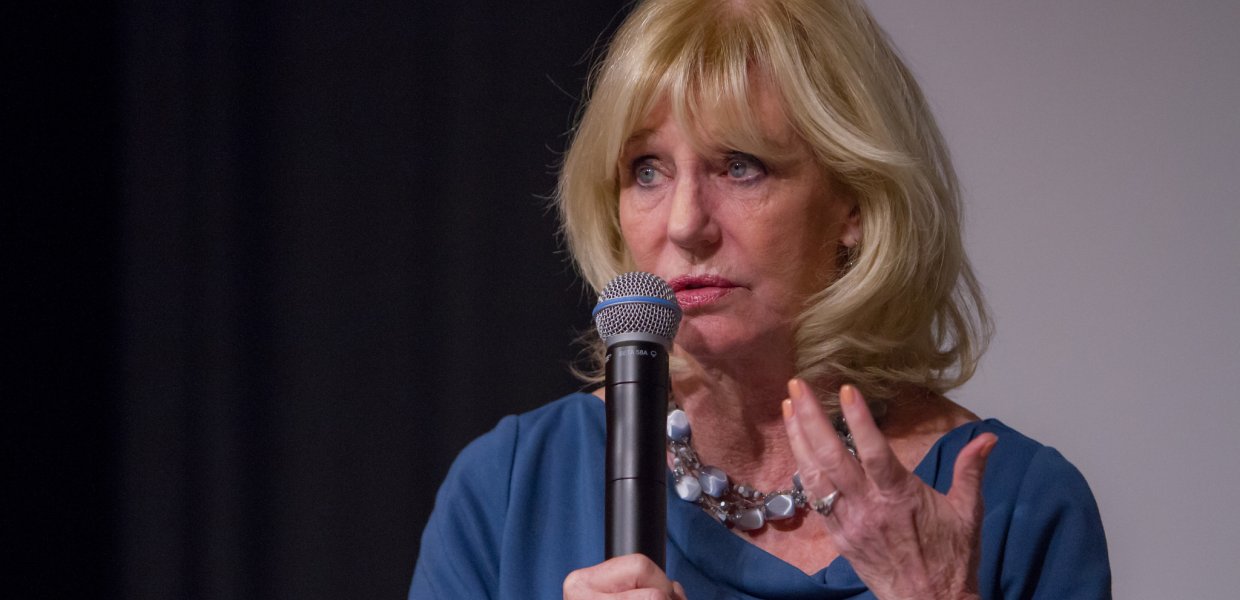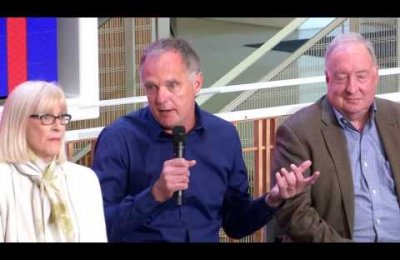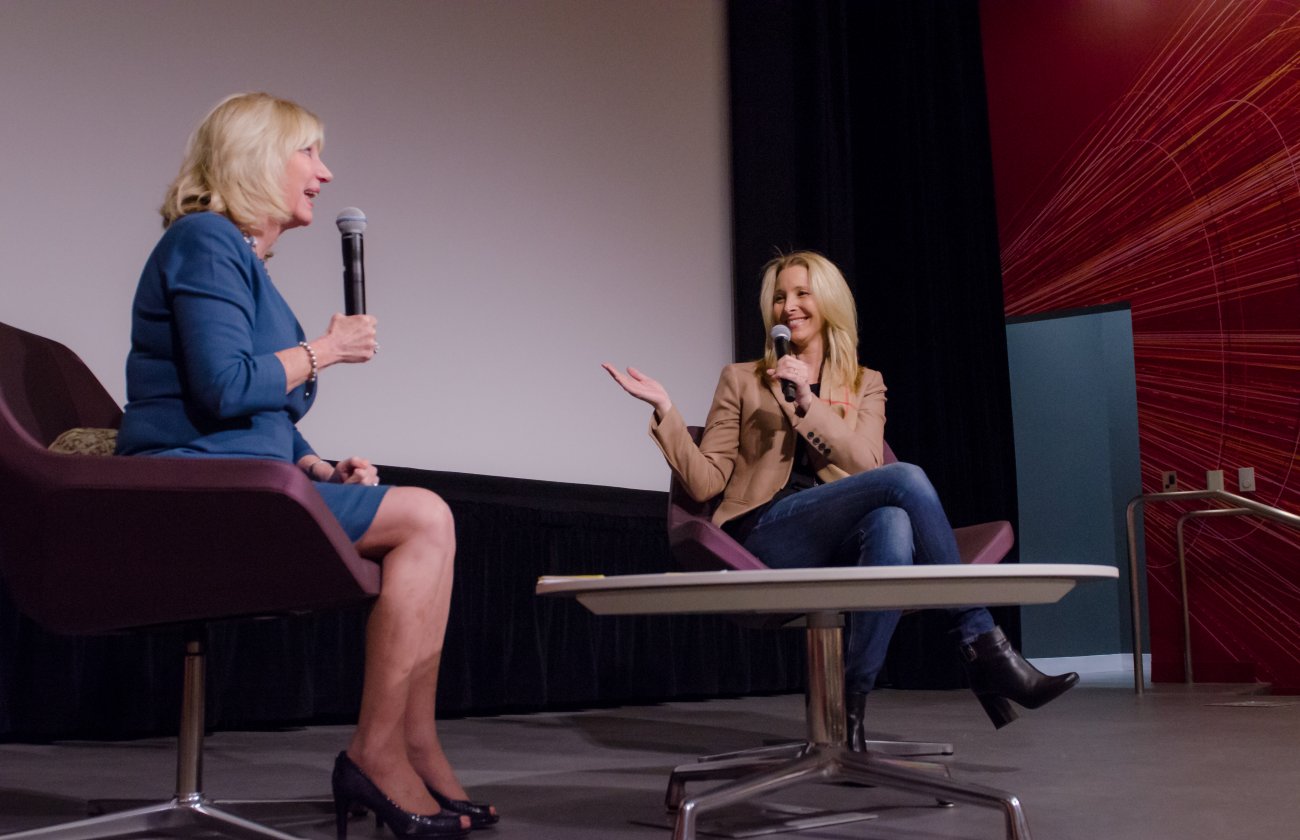When USC Annenberg Professor Mary Murphy first got into entertainment journalism, it was found predominantly in newspapers and consisted mostly of gossip columns.
“It was not really considered serious journalism,” Murphy said to a packed room of faculty and students at the Journalism Forum on Feb. 11, “Spotlight on Hollywood: Women & Entertainment Journalism.”
The forum was part of a series of lunchtime discussions put on by USC Annenberg’s School of Journalism and the Center on Communication Leadership & Policy (CCLP), aimed at exploring the role of women and leadership in the journalism field. Murphy, a former producer at Entertainment Tonight, was joined by three other panelists who have worked in entertainment journalism, a field that has grown far beyond its initial confines.
USC Annenberg Ph.D candidate Kasia Anderson brought a unique perspective to the panel, saying that her latest interest has been in celebrities turning their attention to politics, as well as politicians borrowing celebrity publicity strategies.
Referring to it as “the phenomena of the fan base,” Anderson suggested that connections to the entertainment industry have a huge impact on politics.
“It’s undeniable now, that the associative power of celebrity, in a way, is what can propel a politician into office and into a forum where they make very significant decisions that impact the entire world,” said Anderson.
Even publications such as People Magazine, where panelist Jen Garcia is a senior writer, have transitioned accordingly to cover celebrity and, in turn, political news. They now do features on the families of presidential candidates, as well as many other politicians.
The magazine started nearly 40 years ago, after being just a page of Time Magazine. Its original purpose was to highlight people (hence the title) doing amazing things. Garcia said that though they still try to include human interest stories, the audience interest has shifted.
“So much of what we cover is celebrity news, and that’s just because people are interested,” said Garcia.
And while this may not explicitly denote “serious journalism,” the panelists all agreed that there is some value to celebrity coverage.
“What happens to celebrities then becomes a launching pad for a debate,” said Murphy.
For example, Murphy said that actor Philip Seymour Hoffman’s recent death has sparked an onslaught of debate about heroin use.
Entertainment coverage, like most other news, has also become more prevalent online.
The transition to the web has not only changed the way entertainment is covered, but has also become a way to gauge audience interest. Panelist Kirstin Wilder, who has worked at Variety for the past 20 years, pointed out that the Internet allows publications to see what stories are getting the most traffic.
Wilder added, reluctantly, that celebrity deaths are a huge source of traffic for entertainment publications.
But the Internet also poses a challenge when it comes to breaking news because publications can get the word out much sooner online than in print. Between updating stories on the website to getting out tweets before competitors, “the pace of it is staggering,” said Anderson.
And because stories can be constantly updated, Murphy added that her students have said that they don’t expect that much accuracy when it comes to breaking news.
So, how can USC Annenberg students prepare themselves for a career in the fast paced field of entertainment journalism?
“I would say cast as wide a net as you can,” said Anderson.
It’s easier to narrow down interests later, and in terms of technical skills, most journalists today have to be “an all-in-one, one-stop shop unit, rather than a specialist,” she added.
All of the panelists agreed that a variety of internships is important. Garcia, who started her career on the business side of magazine advertising, also pointed out that “the traditional path may not be the way in.”
But, Garcia added that “if you learn about journalism, in general, and you’re getting that everyday experience and you’re able to story tell and sort of put those building blocks together, as long as you also have the digital skills, it’s the best thing you can do.”








